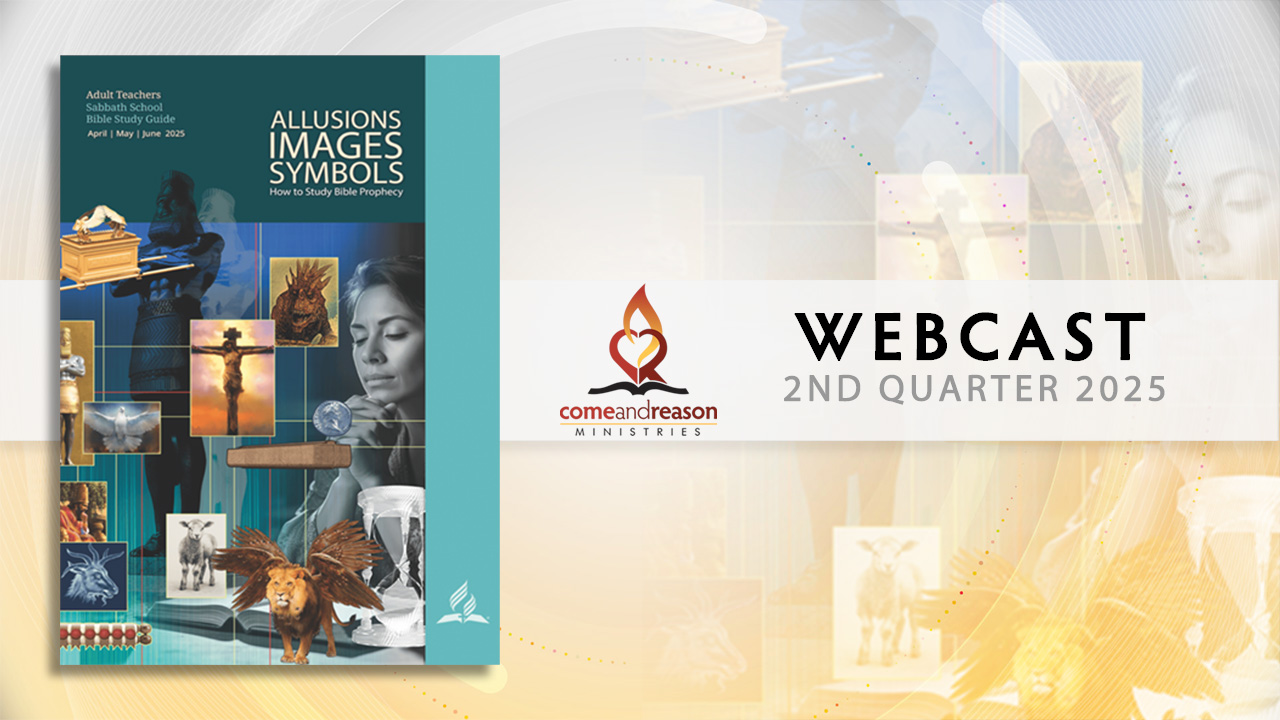In the book of Revelation, Jesus reveals the future to John the apostle. In chapter 18, John sees that before Christ returns, a message comes from heaven to God’s people on Earth:
“Fallen! Fallen is Babylon the Great! She has become a home for demons and a haunt for every evil spirit, a haunt for every unclean and detestable bird. For all the nations have drunk the maddening wine of her adulteries. The kings of the earth committed adultery with her, and the merchants of the earth grew rich from her excessive luxuries.”
Then I heard another voice from heaven say: “Come out of her, my people, so that you will not share in her sins, so that you will not receive any of her plagues” (vv. 2–4 NIV84, emphasis mine).
The call to come out of Babylon is not a call to leave a geographic area or to come out of one denomination and join another—it is a call to come out of a way of thinking and acting. It is a call to leave behind Satan’s version of God and God’s law and return to worshiping the Creator whose laws are design laws.
In Scripture, Babylon symbolizes those systems that claim a belief in God but use the imperial methods of this world to enforce matters of conscience—in place of using God’s methods of truth given in love. They replace God’s design laws with imposed human laws while claiming to advance the kingdom of God.
Then Nebuchadnezzar said, “Praise be to the God of Shadrach, Meshach and Abednego, who has sent his angel and rescued his servants! They trusted in him and defied the king’s command and were willing to give up their lives rather than serve or worship any god except their own God. Therefore I decree that the people of any nation or language who say anything against the God of Shadrach, Meshach and Abednego be cut into pieces and their houses be turned into piles of rubble, for no other god can save in this way” (Daniel 3:28, 29 NIV84, emphasis mine).
Nebuchadnezzar praised God and then immediately used the power of the state to enact laws to punish those who spoke negatively about God. And of all the nations that interacted with Israel during Bible times, Babylon was the first to make a legal code, the Code of Hammurabi, and, thus, Babylon accurately represents the worldly systems of made-up laws and legal enforcement.
To leave Babylon does not require one to leave one’s denominational church—it does require one to change one’s understanding of who God is, how His law and government functions, and to leave the practices, methods, principles, and motives of Babylon and to live out the methods and principles of God’s kingdom of love.
Daniel and his three friends did not leave Babylon physically, but they were not part of Babylon spiritually. They did not accept Babylon’s fantasy version of reality, Babylon’s gods, or the methods, principles, and practices of Babylon. Even while living in the physical city of Babylon, they walked free in their love, devotion, loyalty, and commitment to the true God—they lived out in their lives the kingdom of God. They were in Babylon but not of Babylon.
Likewise, we are to be in the world but not of the world. We are not to have our minds, hearts, characters, methods, motives, and actions shaped, formed, and directed by the world—as Jesus prayed:
My prayer is not that you take them out of the world but that you protect them from the evil one. They are not of the world, even as I am not of it (John 17:15, 16 NIV84).
In Scripture, Babylon not only represents a nation, a human government, but it also represents churches/religions that believe Satan’s lie that God’s law functions like human law and teach a god that functions like a creature rather than the Creator; it represents organizations that use a creature’s methods, principles, and governing type of rules, coercion, and force—even if the doctrine being advanced is right, like Nebuchadnezzar rightly proclaiming Daniel’s God is God but then using coercive force to advance it. The use of imposed law (made-up rules that creatures make) with coercive enforcement on matters of conscience is the sign, method, motive, principle of the world—what Revelation describes as the beast.
¬Ý
God, Satan, and Reality
God is the Creator; He builds reality. His laws are the design protocols for life, the laws of physics, health, and the moral laws. Life operates only when it is in harmony with God’s design laws for life.
Created beings cannot build reality, so we make up rules that we call “laws” and then use external power to enforce those rules through punishment. This is Satan’s form of government.
Therefore, as Satan gets Christians to believe that God’s law functions like human law, he replaces God with himself in hearts and minds as the one being worshiped. Another way to say this is that when we worship a god who functions like a human governor, someone who externally enforces law, we are worshiping a creature rather than the Creator. The apostle Paul warned of this:
Concerning the coming of our Lord Jesus Christ. … Don’t let anyone deceive you in any way, for that day will not come until the rebellion occurs and the man of lawlessness is revealed, the man doomed to destruction. He will oppose and will exalt himself over everything that is called God or is worshiped, so that he sets himself up in God’s temple, proclaiming himself to be God (2 Thessalonians 2:1–4 NIV84, emphasis mine).
By denying God’s design laws and replacing them with imposed laws, Satan is lawless—outside the law of God—and as he gets people to believe God’s law functions like human law, they automatically believe in a god who is the source of inflicted pain and death as “just” punishment for sin. Thus, Satan successfully replaces the Creator God with a creature in the hearts of people, in the Spirit temple, as the one being worshiped.
This is why God, through John in Revelation, calls people at the end of time back to the worship of the Creator, to worship Him who made the heavens, earth, sea, and fountains of water (14:7). This is a call to reject the Roman view of God’s law, to reject the idea that God’s law functions no differently than human law, and to recognize God’s laws as design laws, the protocols upon which life is designed to operate.
¬Ý
Babylon and the Church
We set aside divine law when we teach that God’s government functions like human governments with made-up rules that require judicial and legal oversight and external enforcement. Such religious systems, with their legal accounting, legal adjustment, and required legal payments and punishments, are Babylon.
All religions, including Christianity, that teach that God’s law functions like human law and that God is the source of inflicted pain, suffering, and death as punishment for sin are teaching people to worship a creature in place of the Creator and are, therefore, a part of Babylon.
Understand this clearly: One can be of Babylon and part of the fallen system while holding membership in any denominational church if one embraces in one’s heart the lie that God’s law functions like human law, requiring coercive enforcement, and practices the methods of the beast on others.
This is what the Roman church did to Christianity. It replaced design law with the lie that God’s law functions like Roman law and then went about using the power of force, of arms, of coercion to advance its version of Christianity—the Crusades, Inquisition, burning people at the stake, etc. While the Protestant Reformation rejected many doctrines of the Dark Ages church, her own churches have never rejected the lie that God’s law functions like human law. And this idea, which results in external force and coercion of conscience, is what popery is. One of the founders of the Seventh-day Adventist Church wrote the following:
Here the great crisis is coming upon the world. The Scriptures teach that popery is to regain its lost supremacy, and that the fires of persecution will be rekindled through the time-serving concessions of the so-called Protestant world. In this time of peril we can stand only as we have the truth and the power of God. Men can know the truth only by being themselves partakers of the divine nature. We have need now for more than human wisdom in reading and searching the Scriptures; and if we come to God’s Word with humble hearts, He will raise up a standard for us against the lawless element (2 Selected Messages, p. 367).
What does the author mean by “popery”? Some read this as referring to a denominational system—the Roman Catholic Church, or perhaps to its doctrines, ceremonies, or services. But that is not its intended meaning. Popery here refers to the methods of authoritarianism, of having rulers lord over and dictate orthodoxy and then enforcing their beliefs by the coercion of conscience. To practice popery does not mean to join the Roman church or believe in any of its doctrines; it means to practice the methods of authoritarianism, the coercion of consciences.
We will now examine two more quotes from the same author—the first to discover what she meant by Protestantism, and the second to see how she contrasts Protestantism with popery–to demonstrate that popery is not about denomination or doctrines; rather, it is about methods and principles.
Among the Christian exiles who first fled to America and sought an asylum from royal oppression and priestly intolerance were many who determined to establish a government upon the broad foundation of civil and religious liberty. Their views found place in the Declaration of Independence, which sets forth the great truth that “all men are created equal” and endowed with the inalienable right to “life, liberty, and the pursuit of happiness.” And the Constitution guarantees to the people the right of self-government, providing that representatives elected by the popular vote shall enact and administer the laws. Freedom of religious faith was also granted, every man being permitted to worship God according to the dictates of his conscience. Republicanism [civil liberty] and Protestantism [religious liberty] became the fundamental principles of the nation. These principles are the secret of its power and prosperity. The oppressed and downtrodden throughout Christendom have turned to this land with interest and hope. Millions have sought its shores, and the United States has risen to a place among the most powerful nations of the earth (The Great Controversy, p. 441, emphasis mine).
Consider how the same author used the term popery here (my comments in red):
We are to carry out the principles of Protestantism. [This does not say the “doctrines” of Protestantism, but the principles that are truth presented in love, while leaving others free—for love only grows when people are free.] Popery is represented all around us, and unless every eye is singled to the glory of God, this enormous system of popery will be interwoven with our faith and practice. [Interweaving popery here does not mean accepting its doctrines; it means using the methods of authoritarian force and coercion, undermining liberty of conscience.] Just as far as any of its deluded principles and practices shall insinuate themselves into our religious management and organizations, we are disabled and weakened, and hindered from doing our first work in personal reformation of character; for the principles of the papacy are directly opposed to religious freedom, and wherever they are cherished, an effort is made to control the conscience (14LtMs, Ms 25, 1899, par. 5, emphasis mine).
During COVID, we saw the principles of popery in action strongly among many elements within Christianity around the globe when various churches used authoritarianism to coerce their own employees, students, and members to violate their consciences.
¬Ý
The Last Days and Babylon
Popery, the system of religious intolerance and coercion of conscience, will gain its lost supremacy not by the Roman church gaining control of secular governments but by the methods of authoritarianism being incorporated into our church institutions and practices.
Every organization that would coerce the consciences of people is part of Babylon, whether they are nations or churches, whether Roman or Protestant. And we are called by God to cut out of our hearts those Roman methods, principles, and practices and to be like Daniel—in the world, in Babylon, in systems that coerce, but never be a part of them, always standing separate, always living out God’s methods, always witnessing the truth of God’s kingdom in how we govern ourselves, treat others, and what we teach about God.
We can successfully do this only when we reject the imposed-law view of God and His government, reject the penal/legal lies about salvation, and return to worshiping the Creator whose laws are design laws.
I invite you to “come out of her [Babylon], my people, so that you will not share in her sins, so that you will not receive any of her plagues” (Revelation 18:4 NIV84) and, instead, “worship him who made the heavens, the earth, the sea and the springs of water” (Revelation 14:7)!
¬Ý










 using your credit or debit card (no PayPal account needed, unless you want to set up a monthly, recurring payment).
using your credit or debit card (no PayPal account needed, unless you want to set up a monthly, recurring payment). instead?
instead?